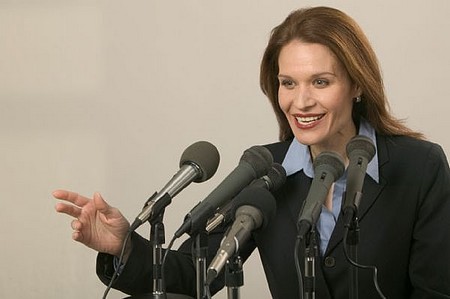A long speech has a shape, a profile: imagine this speech drawn as a graph, and think that it is rising to a peak of interest and excitement. In speaking blank verse, with its linguistic richness, inflection and stress must be subtly used, and quite long passages can be spoken with little change of note: think of the effect of music, which makes frequent use of repeated notes. This speech seems to fall into four sections. The first describes the barge itself, the second, beginning ‘For her own person….’ as far as Agrippa’s interruption subtly arouses interest in Cleopatra by not describing her, but depicting her attendants and the sumptuous pavilion she lies in, the magnificent barge, and the whole exotic ambience. The speech contains much reference to rhythmic movement, the beat of the oars synchronized to the music of flutes, so the words in a way mirror the surging advance of the barge, drawing closer. Perhaps the pace and volume are increasing slightly, hence the excitement. The third part of the speech is hypnotically vibrant, with Cleopatra’s women described as sea-nymphs (Nereides) and mermaids At the helm, a seeming mermaid steers’. Calmly, with contained excitement, Enobarbus is describing an experience so beautiful and remarkable as to seem like a dream or an illusion.
His excitement can only show through the vibrancy of his tone. Now we come to the climax of the speech.
From the barge
A strange invisible perfume hits the sense
Of the adjacent wharfs.

Cleopatra is described as a magical emanation; the words A strange … invisible … perfume’ are said slowly, and it’s the only part of the speech that actually describes her. A pause, then the excitement bursts through:
The city cast her people out upon her!
(I’ve added the exclamation mark)
He rounds up the speech with a fine comic flourish, with Enobarbus being rhetorical, amused and ironic in his description of Antony’s discomfiture. The last two lines are said slowly, with a warm humor, and again, there is a sense of command in what he’s saying:
… th’air; which, but for vacancy,
Had gone to gaze on Cleopatra too,
And made … a gap… in nature.
Here I’ve tried to show the beats that could be used in the last line: the effect is rather like a huge and glittering car coming to a halt; the brakes must be heard to go on, rather than the speech ending abruptly or merely tailing off. Enobarbus tells a good story.
As can be seen, the speech is sometimes irregular in the number of stresses each line contains, and sense must take precedence over regular and rhythmic stressing. Some eminent Shakespearean actors vary widely in the way they use the stresses. This speech illustrates how vividly a character emerges out from Shakespeare’s use of language. Enobarbus is a man very much like Antony, of similar age, occupation, culture and intelligence, but very different; he is able to observe Cleopatra with delight, but not enslavement – at the last, a self-serving and above all detached man.